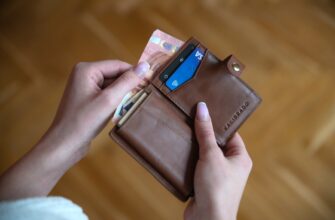## Introduction
Losing access to your cryptocurrency wallet can be panic-inducing, especially when facing KYC (Know Your Customer) requirements during recovery. While many centralized exchanges mandate identity verification, decentralized wallets offer alternative recovery methods that bypass KYC. This guide explores proven techniques to regain access to your crypto assets without submitting personal documents, prioritizing security and privacy.
## Why Avoid KYC in Wallet Recovery?
KYC processes require sharing sensitive documents like passports or IDs, creating potential vulnerabilities:
* **Privacy concerns**: Centralized storage of personal data risks breaches
* **Censorship risks**: Institutions may freeze accounts based on geography or politics
* **Delayed access**: Verification can take days or weeks during critical situations
* **Philosophical alignment**: Many crypto users prioritize decentralization principles
## Essential Pre-Recovery Checklist
Before attempting recovery, gather these non-KYC elements:
1. **Seed phrase**: 12-24 word mnemonic backup (most critical)
2. **Private keys**: Alphanumeric strings controlling wallet access
3. **Wallet type**: Note if it’s software (MetaMask, Trust Wallet) or hardware (Ledger, Trezor)
4. **Transaction history**: Previous addresses or TXIDs help verify recovery
## Step-by-Step Non-KYC Recovery Methods
### Method 1: Seed Phrase Restoration
**Works for**: Software/hardware wallets (MetaMask, Exodus, Ledger)
1. Download the **official wallet software** (avoid third-party tools)
2. Select “Import Wallet” or “Restore from Seed Phrase”
3. Enter words **in exact order** with correct spacing
4. Set a new strong password (never reuse old passwords)
5. Verify balance via blockchain explorer (e.g., Etherscan for ETH)
### Method 2: Private Key Import
**Ideal for**: Quick access to specific addresses
1. Open wallet interface (e.g., MyEtherWallet for ERC-20 tokens)
2. Choose “Access via Private Key”
3. Paste key (ensure no malware is monitoring clipboard)
4. Perform offline if possible using air-gapped devices
### Method 3: Hardware Wallet Recovery
**Process for Trezor/Ledger**:
* Connect device to secure computer
* Select “Recover Wallet” on interface
* Input seed phrase directly on hardware device (never on PC)
* Update firmware before recovery for security patches
## Critical Security Precautions
When bypassing KYC, security becomes your responsibility:
* **Offline recovery**: Use malware-free devices without internet connection
* **Phishing scams**: Triple-check website URLs (e.g., metamask.io not metamask.net)
* **Never share secrets**: Legitimate services won’t ask for seed phrases via email/chat
* **Verify software**: Check GPG signatures for wallet downloads
* **Test small amounts**: Send minimal crypto first after recovery
## When Non-KYC Recovery Isn’t Possible
KYC becomes unavoidable in these scenarios:
* Centralized exchange wallets (Coinbase, Binance)
* Custodial wallets requiring ID verification
* Lost seed phrases/keys with no backup
* Court-ordered account freezes
## Frequently Asked Questions (FAQ)
**Q: Can I recover a wallet with just the wallet address?**
A: No. Addresses are public receive-only identifiers. Recovery requires private keys or seed phrases.
**Q: Are “wallet recovery services” safe without KYC?**
A: Extremely risky. Most are scams targeting desperate users. Avoid any service requesting upfront payment or seed phrases.
**Q: What if I forgot my seed phrase but have the private key?**
A: Private keys alone suffice for recovery. Import them into compatible wallets like Electrum (BTC) or MyEtherWallet (ETH).
**Q: Does recovering without KYC affect transaction history?**
A: No. Blockchain records are immutable. Your balance and history remain intact after recovery.
**Q: Can hardware wallets be recovered without the physical device?**
A: Yes. Use your seed phrase on compatible software wallets, but this compromises hardware security benefits.
## Final Recommendations
Successful non-KYC recovery hinges on preparation. Store seed phrases offline on steel plates, use multisig wallets for large holdings, and regularly verify backups. While avoiding KYC preserves privacy, it demands rigorous security practices. For wallets tied to regulated exchanges, prepare documentation in advance to expedite mandatory verification processes. Your crypto sovereignty comes with equal responsibility.








